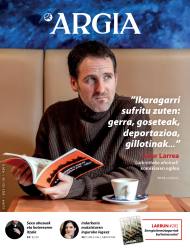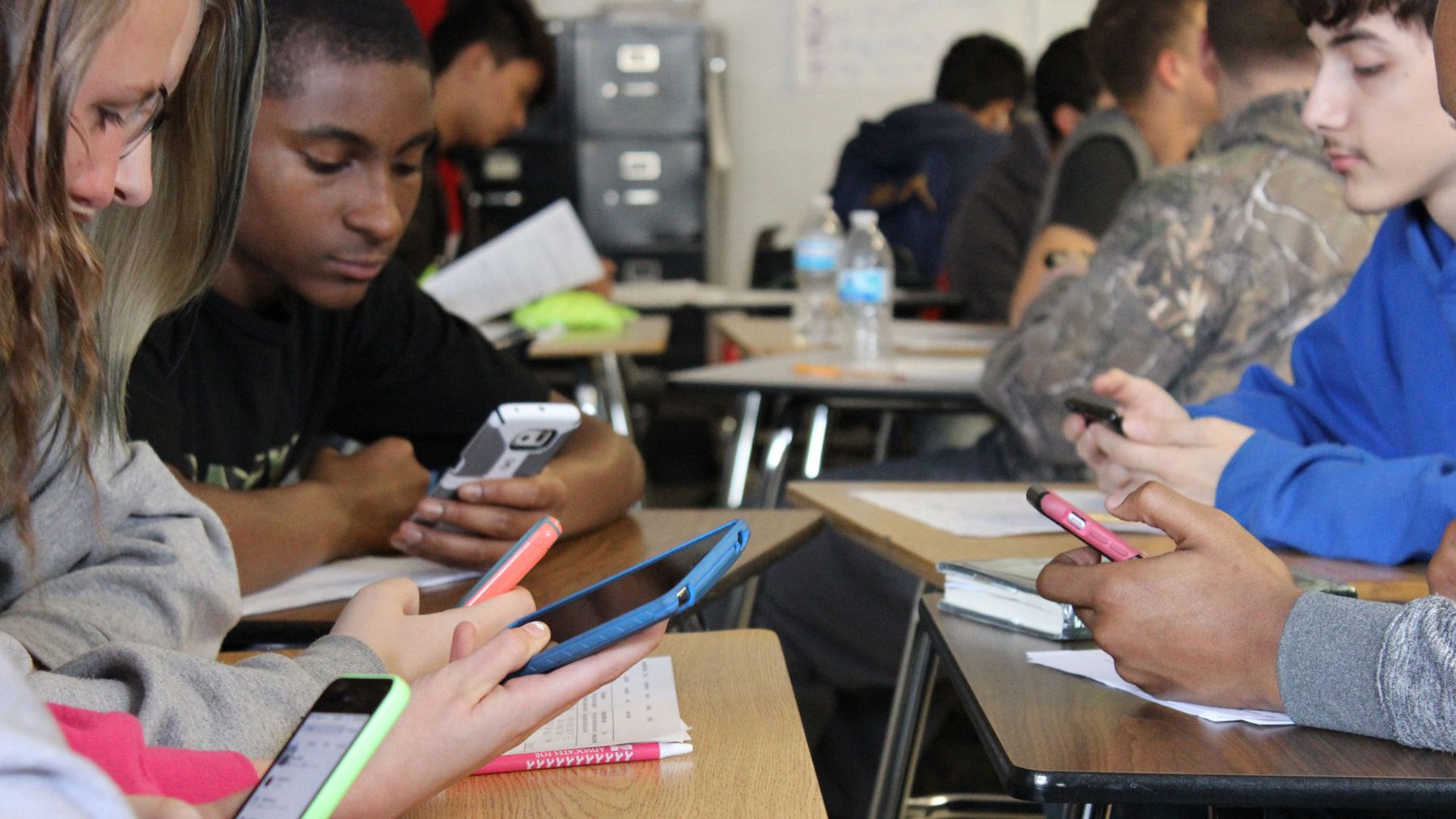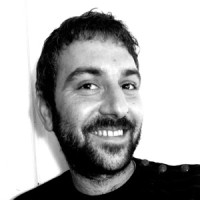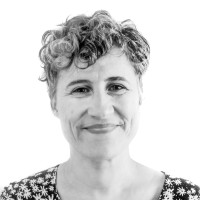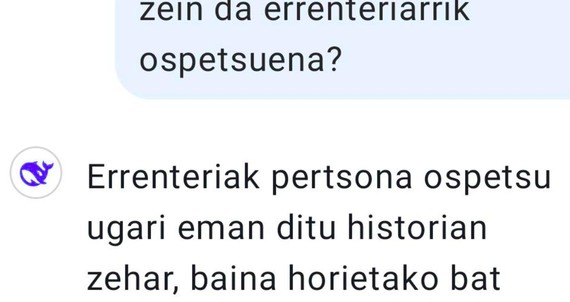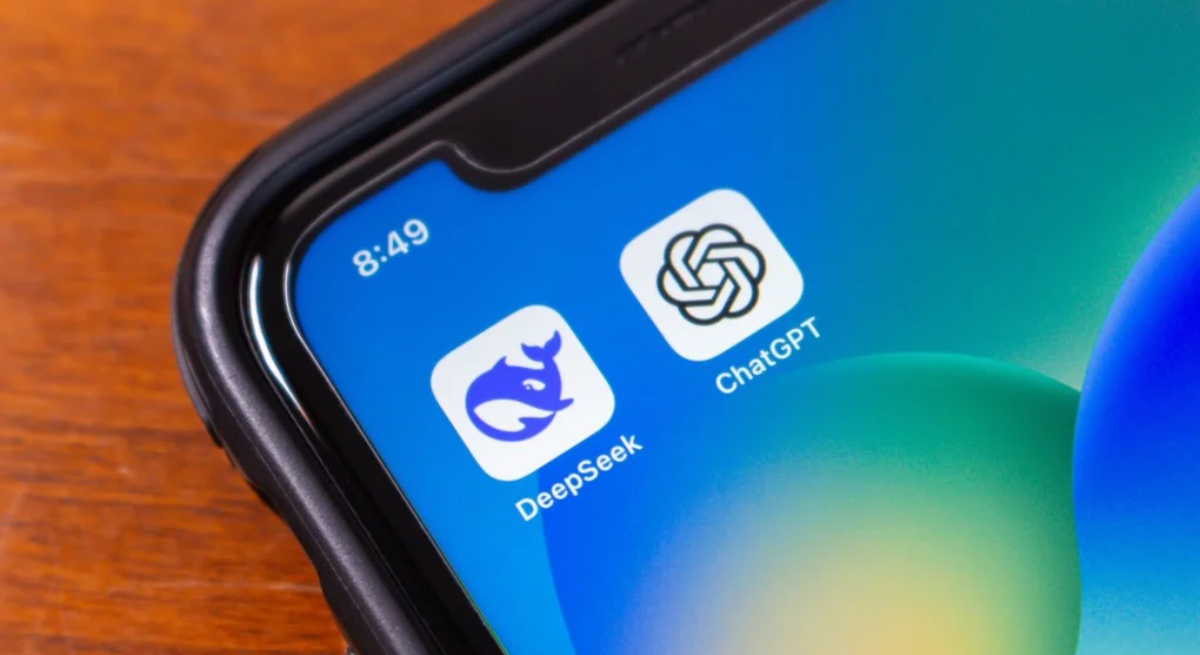"We don't want to be an island."
- Venezuelan wrestler Ángel Prado Padua toured different places in Euskal Herria earlier this month, informing of socialist El Maizal, invited by the International Network for Community Democracy. We met in Hernani on the eve of his speech. The Maizal keeps alive the passion of the Bolivarian revolution and, without concealing the difficulties of the situation, speaks strongly to us.

Padua Angel Prado. Paujisal, Venezuela, 1981
The social wrestler Ángel Prado was born in the mountains of the Portuguese state, in a humble family dedicated to agriculture. He began to participate in organizing his community and in political work. Since 2009, the municipality El Maizal has been working on the creation and development of the socialist and was elected mayor of the municipality of Simón Planas in November 2021.
Born in 1981 in a mountainous area of Venezuela. Could you tell us where they came from? For starters, thank you for the interview. I am Ángel Prado Padua, citizen of the
Bolivar of the Republic of Venezuela, member of the bathroom of El Maizal. We are in the center and west of the country, and we are a rural area. In our realm, previous generations fought a lot not to take off the land, but in the end, the governments of the fourth republic and the neoliberal system stole the best land from our people, the land fields, and granted it to large monopolies. So our families did it in the mountains and decided to stay there. That is our origin. That's where we came from. We're rural people, and although politically we didn't have much information about theories, my family has always been linked to the ideas of the left. We have had an awareness and for years hope has remained alive. Our relatives were tortured by the struggle not to lose land, which had a great influence on the next generations. My mother told me all these stories.
The first milestone in his career as a social wrestler was the creation of
a neighbourhood association in his hometown. As of 1992, in many Venezuelan communities, people felt political changes in the country, great political transformations, and citizenship needed to participate, participate in politics and link young people. An elderly person in the community, very dear, talked to us about the possibility of creating a neighborhood association and proposed to me as president.
It was in 1997. He was a teenager. I was only
17 years old and I didn't know what I was going to do in that task. But my candidacy won, and people respected that community member a lot. So we started organizing things for the community: schools, health centers, agricultural credits… Commander Chavez was still not in power, and at that time we started working with institutions, learning how to enter and manage. We didn't actually get anything, but the community had an organization dedicated to it and recognized by its members.
Was it a kind of school for the road you started? It was the portal of this road that began later and which currently deals with specific tasks. It was a way to begin in the world of politics, especially in social work, in the approach of problems and in the assumption of responsibilities, to respond to the specific problems of the communities. We knew nothing
about the class struggle, at least theoretically, and in practice we knew that the Venezuelan oligarchy had stolen land from our family, treated it badly, and our people said something important had to happen in Venezuela, an uprising. They did not speak of revolution, but of rising up to recover what they robbed us.
.jpg)
"This model will be successful inasmuch as it builds trust, inasmuch as people do it and inasmuch as many people organize themselves, if we prove that the people can, can be the poor country, can organize themselves and can have power."
Shortly afterwards Hugo Chávez came to command. It was in 1999. How do you remember this time? At that time there was a lot of talk about leadership, about leadership of Comandante Chávez, but also about local leaders and leaders. We had to find a way to take that leadership, with a participatory, unrepresentative policy. We saw that the neighbourhood partnership was no longer a viable instrument for making Community policy. We did not know that Chávez would propose the route of communal and common councils as a form of organization, but with the Chávez campaign the Constitution was modified, which resulted in a process of modification of the legal framework and recognition of citizen contributions. This motivated both grass-roots leadership and young people. The young people are
already beginning to participate in politics, and we continue to do so, because our parents accepted Hugo Chávez, despite having a military man and that the military has caused great damage in Latin America.
What do you think is that trust? What did Chavez bring him? Despite being
a military, we took Chávez as a patriot. Chavez brought us history, our history, told us of demands, told us that oil was everybody's and that we had the right to access national wealth through improvements and social demands. With this message from Commander Chavez, many people radically changed that habit or identity of voting on right-wing parties. And people voted not only for President Chavez, but for the promise to modify the Constitution of the Republic of Venezuela, and I think that at that time that was a lot, a good start was established and confidence emerged. Chavez didn't look for people who thought like him, didn't come with Karl Marx -- although we've made a lot of progress in Marxism and theories like this -- no. Chavez came with Simon Bolibar, talked about the dignity and rights of the people. And that conquered a lot of people. It gave us a lot of hope, especially for young people.
What was the situation of the young people then? In our
generation, few people got high school. Life was very hard. The migration from the camp to the city was encouraged. They wanted to encompass rural areas, fill the city with people, and make the work difficult in the city by cheap labor.
In recent days he has travelled to Catalan countries and different places in the Basque Country. How about that? This journey is very important. I think we should have done this before. With Venezuelan dynamics and reality we
are seriously working on responding to needs and contradictions, and sometimes we make a mistake: we stay at the local level and we do not see everything. It is important to know the information and place it in the international context, to value more what we have and to find ways to defend it. In this sense, it is necessary to tell what we are doing in Venezuela. Why has the revolution not fallen? Because we've been committed to building socialism from the ground. Very utopian. Today, in some Venezuelan communities we are building other kinds of social relations, following revolutionary principles, we are collecting their fruits, a project that has been sustained by a very large social base, which does not depend on military force or government. Perhaps it is not entirely in the hands of the people, but as long as we maintain the disgrace and organise joint actions, I believe that we will get out of the current situation in Venezuela, and we must extend that experience and that effort.

"The project does not depend on military force or government. It may not be entirely in the hands of the people, but as long as we keep the shame and organize joint activities, I think we will get out of the current situation in Venezuela"
Many media give a different picture of the bathrooms and your struggles. The Venezuelan bourgeoisie presents to the world three great enemies, equips them the devil, makes the world believe that
Venezuela is an evil people, that popular Chavism is evil and that Chávez, Nicolas Maduro and the commons are the worst of our country, which is what makes the country in these conditions. Taking this into account is very important how we have been welcomed here, how they have shown their respect and recognition for our struggles, and that exchange, the exchange of information, is very important.
To tell from there and to know what's here? Totally. In Venezuela, for a long time, there has been a campaign against the struggles here, it has been presented to you as a people and as a terrorist organization, so it is necessary to approach among the peoples. Solidarity and internationalism as principles, but in a very practical way, from the reality and the capacity of each one, with great will, to bring our peoples closer together. As a people we fight imperialism, we have common problems and goals, and the whole situation we have experienced is very important, especially because we
are determined in the common to grow and advance politically in the communal economy, against imperialism. Imperialism will not forgive, and in that struggle we need international solidarity.
How did you see the situation here? We have seen how they organise themselves, how they go to other countries, such as Palestine, how they try to understand reality and work their contradictions, but they keep fighting. You are at the center of capitalism. In Latin America we have Osaba Sam very close, but there are other conditions to reach power and control faster, to defend our independence and to create spaces for community and integral democracy, thus guaranteeing life. This journey has been
like a school, it should have been done. They told us things about what is here, you have come to see us and from now on we will continue to exchange. You can help us, and we can also contribute.
In 2009, they created the El Maizal district, and they continue to operate 13 years later. What are your challenges from the beginning of the year and with the experience of the last decade? Today we have great challenges in Venezuela; for example, in the communal world, the toilet cannot allow the logic of the bourgeois institution to be repeated, that is, to become aware of common corruption. Another challenge, that our model should not be reduced to something interesting that happens in a territory like this, that it does not end there, that we are not
an island, that we are not the last dreamers of a territory: the last dreamers who keep a relic of Chavism. It's a model we want to build. And this model will be successful insofar as it builds trust, insofar as people do and organize a lot of people, if we prove that the people can, can be the poor country, can organize and can have power. We understood this clearly in El Maizal.
"Chavez came with Simon Bolibar, spoke of the dignity and rights of the people. And that conquered a lot of people. It gave us a lot of hope, especially for young people"
They have also met with other canteens in the country to create the Community Union movement. Starting in 2018, we have had a fruitful exchange with other restaurants in the country. At that time we had to face great contradictions, even from our government. We decided to get out of the bathroom, we stopped isolating ourselves, and we met people who thought
like us, who felt lonely and still in action.
.jpg)
Was that year key? It seemed like it was the end of everything: the blockades, the economic situation, the monetary devaluation, the dollarization of the country -- we thought we were the only ones we still dreamed of, and if so, we thought it would end, the struggle would end. Therefore, it was very
important and strategic to meet with other canteens in the country: we exchange experiences and ideas, we start building trust, we make mutual visits, and in the end, after four years of relations, we have gathered 66 communities of the country to form a national organization with clear objectives: we have a program of struggle, built with a solid popular base and statutes.
Today, the national bath movement believes it is clearer than ever that we must defend the process, continue to build our organisation for peace. Unfortunately, we have seen how in the countries around us, Colombia, Brazil, they have wanted to push the popular movement. In Venezuela we have great opportunities and conditions for progress. If we are not caught up in the sorrows and shortcomings, such as health and other services. The toilet is not the responsibility of governments or ministers. The bathroom is a heroic creation, as Mariategi [José Carlos] said. That is what we are doing. The toilet is not built, it is a process and it is carried out through concrete actions. Utopia will be possible if theories and dreams become concrete facts.
Before the end of the interview would you like to say something else? We are grateful to you. We hope you will continue to fight for your independence. I hope that someday he will return to this country and that we will own ourselves, that the oppressive state will not continue to steal. This state has done us
a great deal of damage in Latin America for a long time. And I think it's fair to lift peoples and bring about revolution. Thank you very much.
We are in the midst of a world imperialist offensive led by the Western bourgeoisie. The form that the imperialist offensive has taken is that of war, with all its variants: economic war, cognitive and cultural war, lawfarr; and, of course, military war. Western imperialism has... [+]
Japan, 8th century. In the middle of the Nara Era they began to use the term furoshiki, but until the Edo Era (XVII-XIX. the 20th century) did not spread. Furoshiki is the art of collecting objects in ovens, but its etymology makes its origin clear: furo means bath and shiki... [+]
Mexikoko bi emakume hauen bizitzak indarkeriak eta desplazamenduak zeharkatzen ditu. Haien familiako edo komunitateko kideak hiltzen ikusi dituzte, eta krimen antolatuak zabaltzen duen terrorea azalean sentitu dute; mehatxuak, jazarpena... ohiko dituzte. Baina horrek guztiak... [+]
I just saw a series from another sad detective. All the plots take place on a remote island in Scotland. You know how these fictions work: many dead, ordinary people but not so many, and the dark green landscape. This time it reminded me of a trip I made to the Scottish... [+]









